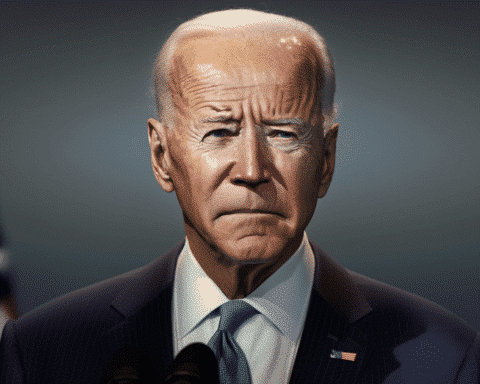The Biden administration has unveiled $20 billion in funding from a federal “green bank” dedicated to advancing clean energy initiatives. This financial support will be directed towards various projects including residential heat pumps, electric vehicle charging stations, and community cooling centers. To ensure equitable access, the administration has established two programs worth $14 billion and $6 billion respectively, which will provide competitive grants to organizations such as nonprofits and community development banks. These grants aim to foster investments in clean energy projects, with a specific emphasis on empowering disadvantaged communities. The launch of this initiative follows the recent introduction of the Solar for All program, a $7 billion effort aimed at promoting residential and community solar projects in low-income areas.
The Greenhouse Gas Reduction Fund, commonly referred to as the green bank, will provide oversight for all three programs. This fund was created by Congress as part of the climate law implemented last year. Vice President Kamala Harris lauded the grant programs as the most substantial investment ever made in community-based climate initiatives in the United States. She underscored that these investments would not only greatly expedite the reduction of greenhouse gas emissions but also bolster tens of thousands of projects dedicated to climate and clean energy throughout the nation.
By means of the federal investments, developers engaged in the construction of affordable housing in cities such as Baltimore will gain access to essential capital required for the installation of energy-efficient appliances. This measure will effectively curtail energy consumption and aid tenants in reducing their electric bills. In addition, small business owners will be afforded the chance to secure zero-interest loans specifically intended for the acquisition of electric delivery trucks. As a result, this initiative will not only contribute to the reduction of pollution and fuel expenses but will also generate a multitude of employment prospects.
Michael Regan, the Administrator of the Environmental Protection Agency (EPA), described the green bank as a means to tackle the climate crisis and reshape the economy simultaneously. He stressed that the three programs would offer transformative resources to disadvantaged communities frequently neglected by commercial banks and investors. Regan emphasized the significance of attracting private capital to overlooked urban areas, underscoring the fact that these communities have been marginalized in the shift towards clean energy.
Applications for the program will be accepted in the fall, with grant awards expected in the following year. The National Clean Investment Fund, with a value of $14 billion, will distribute grants to up to three national clean financing institutions, enabling them to partner with states and the private sector to offer affordable financing for clean technology projects across the country. On the other hand, the $6 billion Clean Communities Investment Accelerator will provide grants to up to seven nonprofits, facilitating access to investments required for deploying clean technology projects.
Clean technology initiatives in low-income and disadvantaged communities will receive financial support from community lenders, credit unions, housing finance agencies, and other institutions.
Maryland Senator Chris Van Hollen, who introduced legislation to establish a national green bank 14 years ago, commended the grants for expediting the deployment of clean energy in underserved communities disproportionately affected by pollution and climate change. The funds will act as a catalyst for private investment in clean energy projects, aiming to reduce emissions and promote environmental justice nationwide.
The green bank has the potential to finance cooling centers in urban areas facing extreme heat, as well as electric vehicle charging stations, building retrofits, and efficient heating and air-conditioning systems. By leveraging the green bank, billions of dollars in private investment are expected to be unlocked, according to EPA Administrator Regan.
Despite the positive reception from the Biden administration and its supporters, Republicans in Congress have criticized the green bank, labeling it a taxpayer-funded “slush fund” prone to abuse. A GOP energy package passed in March sought to repeal the allocated funds for the green bank. However, Regan and other officials have emphasized the rigorous reporting system in place to ensure proper stewardship of taxpayer money, with a focus on investments in low-carbon strategies and increasing accessibility for those who would otherwise be unable to participate.




